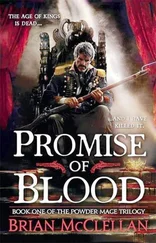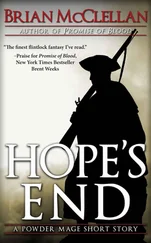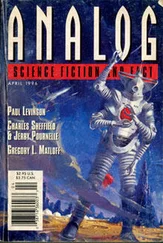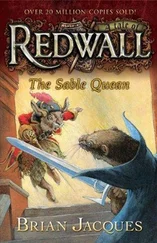Although it wasn’t as if he looked perfect, now, was it? She thought it terrible the way they kept his hair trimmed so short in this place, for easy maintenance, when they should have let it fall unruly over his brow. It would at least conceal that broadly scarred concavity across his forehead.
In a dayroom alive with the shufflings and mutterings of his ward mates — a chamber that took her back to her duties on Ward Five — she would spend a full afternoon with Clay, sitting with him at a table and for a time trying to penetrate his never-ending stare. Where did you go? she would think, sometimes even feeling a tweak of jealousy because his surrender to it was so complete. It denied her everything.
She would then take to conversation that was entirely one-sided, wondering if anything was getting through. Giving him updates on her life because she didn’t know what else to talk about — she should reminisce about all the fun times they’d had? — and she would reveal herself in a peculiar role-reversal she had never anticipated. Clay sat like the perfect therapist, never a word, a pale iconic presence whose silence only prompted her to go on, find something else, there must be more.
He heard of changes in locale. Tempe had understandably gone sour, Sarah everywhere she looked and many places she didn’t, and so she had tried Albuquerque but hadn’t fit; perhaps her need for the desert was no more. For now it was San Diego and holding. Probably she had come to her oceanic phase, in love with saltwater and the security of the tides.
He heard of lovers present and past, of Karen and Sally and Adam; of the brief marriage to Geoff, which ended in amicable defeat. She thought to try celibacy for a time but had fallen off that wagon in four months. He heard of Val and Franz and Melanie, and others, and after a time she began to think, I see him once a year and I’m still probably boring him, because it always sounds the same. Only the names have been changed to protect the wounded.
And she remembered when she could love, easily, eagerly, and wondered what was wrong, why none of them ever seemed right , why they would invariably drift apart. It should be easy to find someone, the advantage was hers — after all, she had the whole of both sexes to choose from.
She confessed this to Clay, but if he knew what the problem was he wasn’t saying.
She would sit and hold his hand sometimes, taking it as her pathetic triumph that he no longer pulled away. Wherever he had gone, she could never follow, and so she took to making up inner lives just so she might pretend she knew: He had found a family, or a lover he could never drive away, or a womb in which he curled, bathed in all the potential that might yet be fulfilled.
Life is a short dream, the ancient Romans had said, and so once a year she would stay through late afternoon, and kiss him on the cheek, and wish him godspeed on his.
While she went back out and tried to make sense of her own.
In the ninth year of his stay Adrienne left as she always did — a little sad, a little relieved, a little fearful over the thought of how her life might change, or mightn’t, in the year to come before her next visit. Annual rituals were harsh that way, always forcing your head around to face the future. She took the elevator down to ground level, sharing it with several others to whom she paid no mind. Its doors slid open and all of them went about their lives.
Adrienne was halfway to the door when she realized that one of them seemed to be trailing her. Surely not, though. It must be coincidence.
“It’s good of you to come every year, way you do,” the man said as they stepped through the doors of the hospital and began to descend terraced steps toward the parking lots. “It’s a fine thing you don’t forget him.”
She stopped on the concrete walkway and turned. The speaker was an elderly man, once tall but now mostly withered, with a stern face gone slack, his hair white and cropped in an old man’s crew cut. He wore his old blue suit with a touchingly natty pride, and smelled of too much sweet cologne, and she had never seen him before in her life.
“Do I know you?”
“I’m…” He looked down, seemed almost embarrassed. “I’m Clayton’s father. Randolph Palmer.”
He seemed reluctant to shake hands, no point to such a formal gesture, for which she was glad. She might not even have been able to move her arm, when it came right down to it.
Clay’s father. He must have been, what, in his early seventies now? About that. He looked it, possibly more. She found a scar on him that she’d not noticed at first, a thick ridge nesting low in the wattles on his neck. He caught her staring, mentioned getting a Purple Heart for that one, and didn’t appear interested in pursuing it further.
“I been trying to catch you, this makes the fourth year,” he said. “The boy doesn’t have any visitors but for you and me. They told me about you a few years back, and I said to myself, ‘Well, I’ve just got to meet her, if only the once.’ It’s a fine thing you remember Clay.”
Adrienne got herself moving again, down the stairs and across the lot. He followed along as escort, mindful of the traffic because he seemed to realize how distracted she was.
It was like the appearance of an apparition, a visit from the ghost of Jacob Marley or Hamlet’s father. Never had she pictured him, not consciously, even during the heaviest of her sessions with Clay. But deep in her heart she supposed she had painted the portrait of an ogre, a cruel and gigantic man who devoured his only son until he was nothing but scraps and bones, then berated him because there was nothing left to take. Randolph Palmer could never have lived up to such a fearsome image, now less than ever, and she wished he had never shown her his face at all, for now she was tempted to feel sorry for him.
“Did you travel all this way just for this?” she asked.
“Wasn’t anything. I don’t live but a few miles from here. It’s not a bad drive at all, come summer.”
“I thought you lived in Minneapolis.”
Randolph Palmer shrugged, scuffing along in well-worn shoes, newly polished. “I moved here seven years back, to be close to him now even if I wasn’t for the years before he… well, hell, before he got this way. I suppose I could’ve moved him someplace back to home, you know, but… just seemed right I should leave him be and I should be the one haul up stakes.”
“What about his mother?”
“Oh, she died about the same time. Her liver got too big on her.” He shook his head. “You can’t have that.”
There’s a lot you can’t have, she thought, but people do it anyway, to themselves and to each other. So often they never learned in time. Or never learned at all, going to their graves with befuddled faces.
She led them to her rental car and stood at the door, digging in her purse for her keys as Randolph Palmer stretched, turned on run-down heels, and tipped his face to the lowering sun while gazing back toward the hospital.
“The boy always was a handful, or most of the time,” and then his head lowered, sinking into the scarred wattles. He rubbed his chin with his fist, huffed with a gruff little laugh. “One time, he was four years old, must’ve been, he had this favorite toy. A stuffed lamb is what it was, dirty white thing, half the fuzz worn gone. He dragged it everywhere. Stupid damn toy for a boy, is what I thought. I burned the thing. Burned it and held his hand over the flame so he wouldn’t want to touch one again.” He shut his eyes, and for a moment she thought he might cry until he cleared his throat and put himself out of danger. “I shouldn’t have done that.”
Keys in hand, she tried to stand tall, taller than she felt while unlocking the car door and hoping to ignore the remorse in the man’s voice. It was too late for remorse in this case. For once she wanted to be unreservedly bitter and childish and cruel. Let her have this one bitter thing in her life, and she would keep trying to make the rest, if not sweet, at least palatable.
Читать дальше












